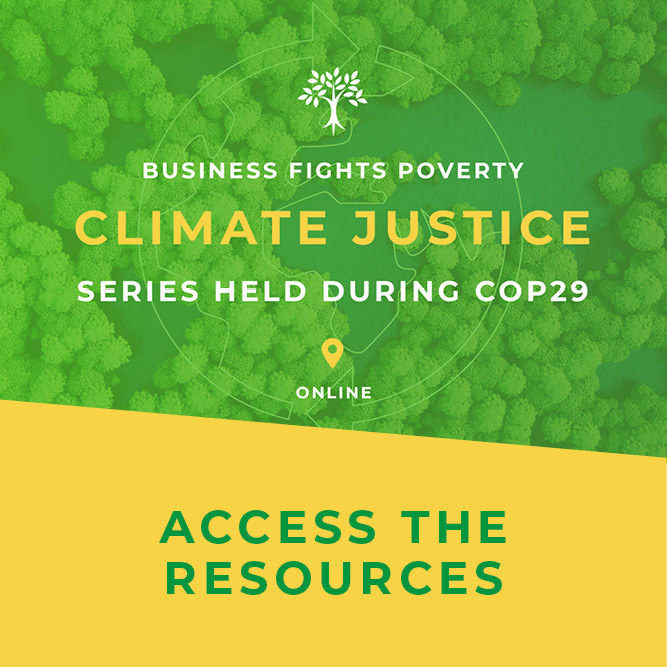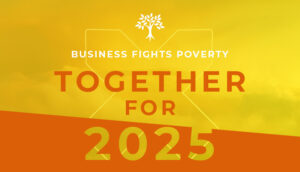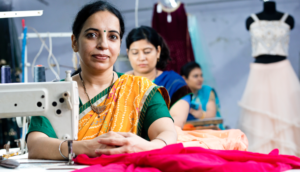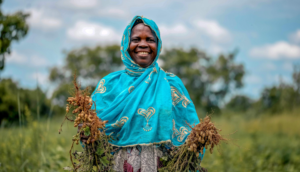Justine Greening’s speech on 11 March at the London Stock Exchange on business and development repays careful study. It expands on the commitment to growth and jobs that she made in an earlier, agenda-setting speech on 7 February. In that earlier speech, she committed to ‘ramping up’ DFID’s focus on helping to drive economic growth, and to ‘responsible investment’ which creates jobs and financial independence. The second speech sets out in more detail what this might mean in practice – for the world and for DFID. The full text is reproduced for ease of reference at the end of this piece.
My conclusion is the Greening has made a valuable contribution in raising the profile of responsible investment, aligning herself with a large body of thinking on business and development – but that there is more to do in the future. In particular, I would like to see her explore (ambitious) minimum standards as well as maximum aspirations, including using the power of DFID contracting to drive change in business practice.
What did Greening say?
The first part of the speech makes the case for growth and identifies three drivers:
- ‘Firstly, reducing overall barriers to trade and investment – whether regulatory, infrastructure, legal or institutional.
- Secondly, unlocking the ability of entrepreneurs and business people in developing countries to themselves drive economic growth through their own businesses being more and more successful.
- Thirdly and critically, I believe it also means greater investment by business, and I want to see UK companies joining the development push.’
The next part of the speech expands especially on the third leg of this tripod, with a particular focus on business-NGO partnerships which help to develop new products or extend markets: Unilever is name-checked, as are Coca-Cola, and M and S. On the NGO side, Fairtrade, Oxfam, CARE, and ColaLife all receive honourable mentions.
Greening then turns to what DFID is doing, including support to the development and sustainability of supply chains (for example, tea in Rwanda or textiles in Bangladesh), and the introduction of new products (electronic money transfer, vaccines, or educational materials). Again, many companies are mentioned (Vodafone, Taylor’s of Harrogate, Waitrose, Tesco, Sainsbury’s, SAB Miller). There is also reference to a raft of DFID initiatives: the Food Retail Industry Challenge Fund, for example, and the Trade and Global Value Chains Initiative. In fact, the DFID website now lists 22 different initiatives for business. Greening makes the point that these and other partnerships should be available not just to large companies, but also to small and medium enterprises, SMEs. She also commits DFID to working across Government to help expand opportunities for British business.
There is an ethical dimension to the work. Greening says that we do developing countries no favours by leaving the economic coast clear to those with corporate governance standards that are far lower than our own.
In the next section of the speech, Greening turns to the local business environment in developing countries: property rights, the legislative frameworks, the tax base, anti-corruption, trade barriers. Trade Mark East Africa is (rightly) praised. Additional funding is announced for the International Growth Centre. And a new Commercial Law and Justice programme is announced (the tender is here). This section deals specifically with the first and second legs of the original tripod.
Finally, there is a section on innovative finance, with approving references to the new mandate of CDC, to investment funds, and to social impact investment. A G8 event on impact investment is announced for 6 June.
What to make of the speech?
A first reaction to the speech is: ‘yes’. The positive messaging about the role of the private sector in development is worth driving home. ‘Responsible investment’ is a good phrase. And it is notable that Greening talked about SMEs as well as large multinationals. She also acknowledged the importance of building developing countries’ own private sector.
I don’t know that these ideas themselves are revolutionary. For example, it is worth re-reading Andrew Mitchell’s speech on wealth creation, back in 2010. He talked about bringing business DNA into DFID, and said inter alia that
‘It is my intention to recast DFID as a government department that understands the private sector, that has at its disposal the right tools to deliver and that is equipped to support a vibrant, resilient and growing business sector in the poorest countries.’
Of course, the ideas go further back even than the election of 2010, which brought the Conservative-led Coalition to power. Anyone remember Shriti Vadera being made a minister in 2007, and the subsequent launch, in 2008, of Gordon Brown’s Business Call for Action? How about the White Paper of 2009 (esp paras 2.54-2.63 on ‘stronger partnerships with the private sector)? Or go further back, to the White Paper of 2000 on Making Globalisation Work for the Poor (esp paras 197-215), or the 2005 Report of the Africa Commission (esp Chapter 7, Section 7.4.3, on ‘What Business Should Do’). DFID has had a series of policy papers on the private sector, for example this one in 2008 and this one in 2011.
This suggests two things. First, that there has been strategic consistency in DFID on this issue for at least a decade. And, second, that we need to look more closely at what Justine Greening might mean when she says that
‘. . . what I’ve set out today is intended to signal a real shift in my department’s work – driving economic growth alongside core work on basic services, working hand in hand with business to do that’.
Does a ‘real shift’ mean additional funding for the International Growth Centre and the creation of a Commercial Law and Justice Programme? Or should we expect – or hope for – something more? That’s a question to come back to.
Taking the analysis further
Before coming back to DFID, it is worth observing that the various initiatives launched by DFID since 2000 did not happen in a vacuum, and reflected thinking in the wider world. This is important, because it tells us where we might look for the ‘something more’.
There has been influential work by people like C.K. Prahalad (the Fortune at the Bottom of the Pyramid), Jane Nelson, Michael Porter (‘Creating Shared Value’) and Klaus Schwab (‘Corporate Global Citizenship’). Apart from the World Economic Forum, which has had many programmes on this topic, organisations like the Prince of Wales’ Business Leaders’ Forum, now the International Business Leaders’ Forum, or Business Fights Poverty have been sources of inspiration and innovation over many years.
ODI has had work on business and development since the early 2000s (see, for example, a Briefing Paper by Michael Warner in 2004, on ‘The Business of Poverty’), with work in sectors such as oil and gas, logistics, tourism and agriculture. There is now a fully-fledged programme on The Private Sector and Markets, led by Karen Ellis. A recent paper by Paola Lucci provides an overview of how business might contribute to the post-2015 global goals.
(Just to declare my own interests, involvement in the topic has involved collaborations with many of the above, including ODI, of course, a long engagement with the WEF, including on humanitarian issues and agriculture, and the public meetings of Business Fights Poverty (on whose Circle of Advisers I sit). ODI had a close association in my time with IBLF, on the Partnership Brokers programme. CDKN, which I chair, has a strong interest in business contributions to climate change mitigation and adaptation.)
In 2008, I identified a four step ladder of business contributions to poverty reduction. These were:
Step 1: Business engagement in the community, mainly through philanthropic activity (‘painting the orphanage’);
Step 2: Taking corporate social responsibility into the heart of the company, and signing up to the ten core principles of the UN Global Compact, for example free association and a commitment not to use child labour;
Step 3: moving beyond CSR, and reconfiguring the core business to increase development impact, for example via new products, or new relationships with small producers in supply chains.
Step 4: working with others to produce global public goods, for example via collaboration on early-stage research and innovation (e.g. second generation biofuels) or measurement and bench-marking (e.g. water use by soft drink companies).
There are many examples of good practice in all these areas. The Business Fights Poverty website contains an archive of nearly 500 events, most presenting two or three different cases. Many sets of principles have been established, for example the Equator Principles on the social and environmental effects of project investments, or the OCHA-WEF Guiding Principles for Public-Private Collaboration for Hu….
There has also been a large investment in qualitative and quantitative measurement of the impact of business innovation on poverty: see, for example, this brief produced by Caroline Ashley for the Business Innovation Facility, distinguishing between livelihood assessments, value chain mapping, economic modelling and indicator-based tracking.
In terms of monitoring the work of individual companies, rather than projects, useful approaches include GRI, GIIRS and IRIS.
The first of these, the Global Reporting Initiative, ‘has pioneered and developed a comprehensive Sustainability Reporting Framework that is widely used around the world. The Framework enables all organizations to measure and report their economic, environmental, social and governance performance – the four key areas of sustainability.’
The second initiative, the Global Impact Investing Rating System, describes itself as a ‘comprehensive and transparent system for assessing the social and environmental impact of companies and funds with a ratings and analytics approach analogous to Morningstar investment rankings and Capital IQ financial analytics. It seeks to spark the impact investment movement by providing a tool that is intended to change investor behaviour and unlock the potential of this new asset class’. Companies evaluate performance on up to 180 different measures of performance, for example the provision of health insurance for workers or the use of renewable energy. More than 2500 companies have participated so far.
The third initiative, Impact Reporting and Investment Standards, is described as ‘a set of standardized metrics that can be used to describe an organization’s social, environmental, and financial performance. . . . IRIS metrics span an array of performance objectives and include sector-specific metrics for areas such as financial services, agriculture, and energy among others. Like financial accounting standards, IRIS provides a basis for performance reporting and organizations need only use relevant metrics from the IRIS library.’ IRIS has many partnerships with other standards initiatives, for example on SMEs.
Fair trade, of course, provides a complementary and comprehensive approach to certification – with the Fairtrade Foundation certifying products from over 500 companies, and reaching total sales in 2012 of £1.5 bn in the UK.
Now, obviously, it is not the case that business activity has no costs, nor that it is always good for the poor (for example, see critiques of the Bottom of the Pyramid business model). Nor is it the case that ‘responsible investment’ will happen on its own: there are market failures here, as everywhere. That is why, summarising progress so far, in 2009, I wrote that
‘scaling up remains a problem in many sectors, a question of organisational learning and transformation, but also, in many cases a result of market failure. Hence the need for Government or donor support, through challenge funds like the Financial Deepening Challenge Fund or the Business Linkages Challenge Fund. Investment in infrastructure and ‘aid for trade’ are common themes. Hence also the need for NGO and private sector intermediaries with expertise in brokering and supporting new partnerships and initiatives. Public campaigning also has a role to play, as with conflict diamonds or fair trade. ‘Making markets work’ is the title of the DFID policy paper, with a commitment both to work with business and support Governments.’
I went on to suggest that ‘business may want to report on and be held accountable for:
• Continuing to engage in charitable activities;
• Committing to the UN Global Compact and maintaining, for example, good labour standards;
• Designing and delivering products which benefit the poor and the environment;
• Reworking the supply chain to increase the participation of the poor and benefit the environment;
• Widening the range and deepening the impact of spill-over effects – technology, skills, management practices, legal and accounting standards – perhaps working with industry associations or chambers of commerce;
• In general, contributing to innovation and transformation, as economies recover from the financial crisis and confront new challenges posed by urbanisation and climate change.
• Engaging in equitable partnerships which change power relationships in the value chain;
• Contributing to national policy-making, through industry associations and otherwise (but being careful to avoid regulatory capture or rent-seeking, for example by supporting open and participatory policy processes); and
• Contributing to the production of national, regional and global public goods, through research, participation in global fora.’
Revisiting DFID’s next steps
All this marks out important territory for DFID. The least we might expect is some re-prioritisation of spending. More ambitiously, we might hope for further elaboration of the concept of ‘responsible investment’, along the lines laid out above, and for demanding targets when it comes to implementation.
As to prioritisation, DFID has established for itself a clear results framework, based on the outcome of the bilateral and multilateral aid reviews. This is summarised in the Annual Report and Accounts 2011-12 (table A, Pg 11), with 27 specific outcome targets, grouped under 7 headings (for example, ‘helping people prosper’, or ‘feeding the world and helping the poorest’). These do not provide clarity on the role of the private sector. Probably, we need to go down a level in the logical framework, and seek more information about outputs and activities, globally, and in DFID’s 28 priority countries. It would be useful to have a review – also of the 22 business-focused initiatives listed on the DFID website. Is this a task for the Independent Commission on Aid Impact? It has a report planned for 2013-14 on DFID’s work with the private sector.
As to targets, the main observation I have is that Greening’s speech celebrates the best, but could have gone further in castigating the worst. Politically, celebrating achievement may well be the best way to play a business audience, but it would be useful in the future to explore (ambitious) minimum standards as well as maximum aspirations. For example, how would it be if DFID were to announce that in future it would not contract any company that had not signed up to the Global Compact, or had not achieved a satisfactory score on GIIRS or IRIS? In January 2013, DFID published a ‘Statement of priorities and Expectations for Suppliers’. This contains one sentence which relates to the current discussion, viz that contractors should ‘demonstrate clear, active commitment to Corporate Social Responsibility’. This seems an incomplete attempt to encourage a different way of doing business.
One practical idea. Is it time to revive Karen Ellis’ proposal for a Good for Development label?
This blog was first published on Simon Maxwell’s Blog and is reproduced with permission.










